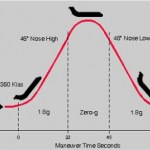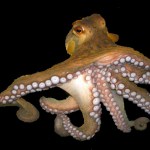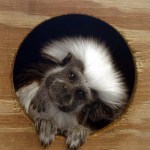Core Knowledge
This past weekend, I was searching around the interwebz looking for something interesting to write about for Monday Pets. Lately, Monday Pets has been somewhat cat- and dog-heavy, so I was looking for something a bit different. I asked on twitter if there were any requests or recommendations. Friend of the blog Dave Munger responded: "What about snakes?"
What about snakes indeed? There are many parallels between myself and Indiana Jones, but one big one is that we both hate snakes. Another similarity is whenever I travel by plane, I leave a series of red dashes to mark my path. We both look…
Say you're visiting Los Angeles and you have a sudden craving for Chinese food. Since you are only visiting, you might not be aware that nothing is open past, like, 10pm (not even coffee houses), but you get in your rental car and go driving around in search of your Chinese feast anyway. You try hitting up Panda Express, but no such luck. Of course they're closed. You try the neighborhood Chinese restaurant: closed as well. You get back in the car, and think to yourself "maybe the OTHER Panda Express will be open", but alas, it is not. You are ready to return to the hotel and just go to sleep…
It's amazing how much you can learn about an animal's mind by a simply watching it.
Video 1: Gratuitous video of octopuses never hurt anyone. Maybe this will sate the Pharyngulites.
In the late 1980s, a researcher named Jennifer A. Mather wondered about octopuses' use of spatial memory. This researcher and some volunteers did some skin-diving near Bermuda and observed octopuses going out in search of food. They noticed that sometimes after catching a tasty bit of chow, the octopuses ate out, but sometimes they'd take their snack to go and eat at home. And not only that, but it turned out…
What are the cognitive and neural systems that allow us to build buildings, play checkers, do multivariate statistics, receive DVDs by mail, follow Dr. Isis's pesto recipe, or navigate the tangled LA freeways?
You may ask: what can studying children and non-human animals tell us about the complexity of the human experience? Only educated human adults engage with formal mathematics, cooking, or map reading. Right?
This is a reasonable question to ask. But when human adults show complex, possibly culture-specific skills, they emerge from a set of psychological (and thus neural) mechanisms…


